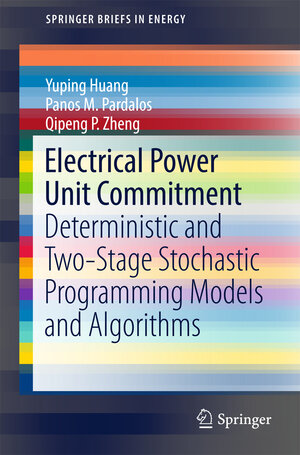
Electrical Power Unit Commitment
Deterministic and Two-Stage Stochastic Programming Models and Algorithms
von Yuping Huang, Panos M. Pardalos und Qipeng P. ZhengThis volume in the SpringerBriefs in Energy series offers a systematic review of unit commitment (UC) problems in electrical power generation. It updates texts written in the late 1990s and early 2000s by including the fundamentals of both UC and state-of-the-art modeling as well as solution algorithms and highlighting stochastic models and mixed-integer programming techniques.
The UC problems are mostly formulated as mixed-integer linear programs, although there are many variants. A number of algorithms have been developed for, or applied to, UC problems, including dynamic programming, Lagrangian relaxation, general mixed-integer programming algorithms, and Benders decomposition. In addition the book discusses the recent trends in solving UC problems, especially stochastic programming models, and advanced techniques to handle large numbers of integer- decision variables due to scenario propagation



